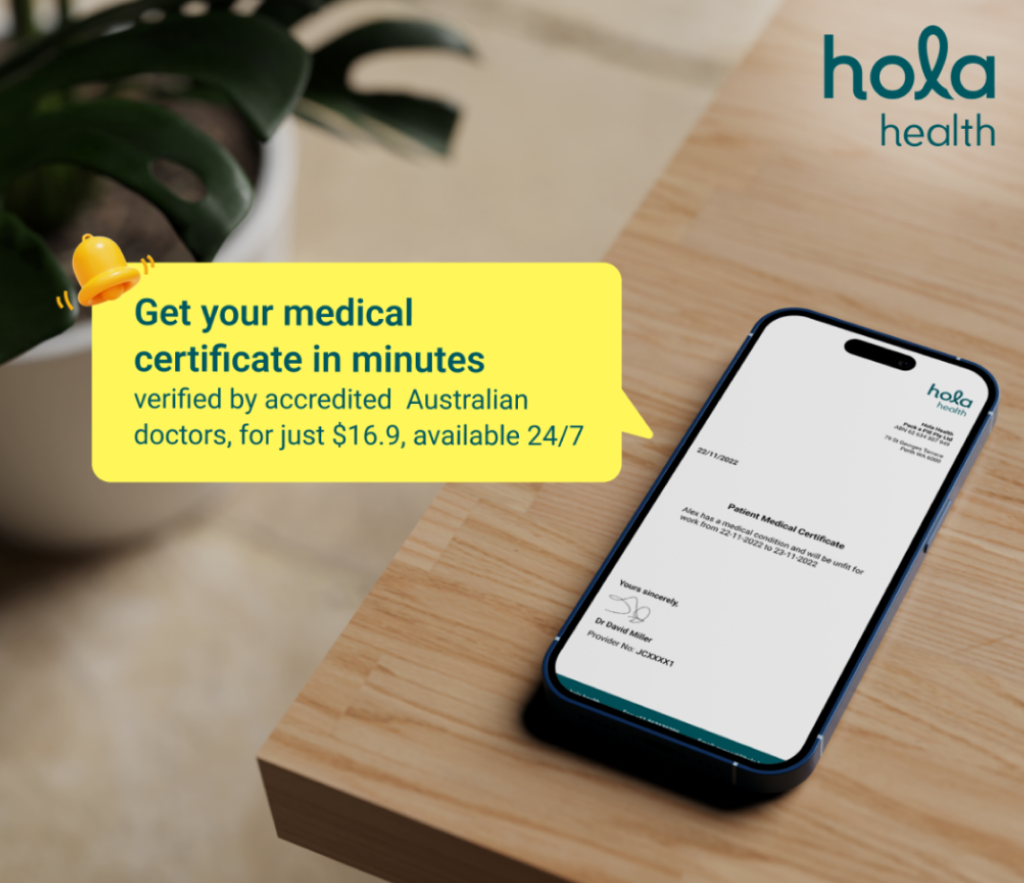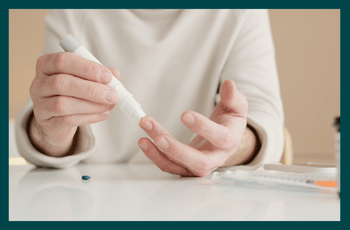- Home
- /
- Health Conditions
- /
- Bad Breath
Bad Breath Treatment
Connect with an AHPRA-accredited online doctor regarding bad breath within minutes from anywhere in Australia, 24/7.
About bad breath

Medically reviewed by Dr. Ammar AL-ANI, MBChB, CCBST, AMC
When to consult a doctor for bad breath?
Bad breath, or halitosis, can be caused by a variety of factors. While occasional bad breath is common, especially after eating certain foods, it can sometimes be a sign of an underlying health issue. You should consider consulting a doctor if:
- Persistent bad breath: If bad breath persists even after maintaining good oral hygiene, it might indicate a health condition like gum disease, sinus infections, or digestive issues.
- Accompanied by other symptoms: If you experience other symptoms along with bad breath, such as a dry mouth, mouth sores, or changes in taste, it could point to an underlying medical issue that needs attention.
- Sign of infection or disease: Bad breath that smells like ammonia or is accompanied by a metallic taste could suggest kidney problems. A fruity odour may indicate uncontrolled diabetes, while a foul smell might be linked to respiratory or gastrointestinal issues.
- Gum disease or cavities: If you have visible signs of gum disease (swollen, bleeding gums) or cavities, it’s important to see a dentist or doctor to prevent further complications.
- Difficulty breathing or swallowing: If bad breath is associated with trouble breathing or swallowing, it could be a sign of a more serious condition like a throat or lung infection.
What causes bad breath?
Bad breath, or halitosis, can be caused by a variety of factors. Here are the most common causes:
- Poor oral hygiene: Inadequate brushing and flossing can lead to food particles remaining in the mouth, promoting bacterial growth and causing bad breath.
- Food choices: Strong-smelling foods like garlic, onions, and spices can temporarily affect your breath.
- Dry mouth: Saliva helps cleanse the mouth. A lack of saliva, due to dehydration, medications, or conditions like Sjögren’s syndrome, can lead to dry mouth, causing bad breath.
- Gum disease: Gum infections, such as gingivitis or periodontitis, can result in foul-smelling breath due to bacteria in the gums.
- Smoking: Tobacco products dry out the mouth and leave a persistent odour, while also increasing the risk of gum disease.
- Infections or illnesses: Respiratory infections (like sinusitis or bronchitis), tonsillitis, or mouth infections like abscesses can produce foul odours.
- Gastrointestinal issues: Conditions like acid reflux or ulcers may cause bad breath due to the regurgitation of stomach acids or gases.
- Underlying medical conditions: Conditions like diabetes, kidney disease, or liver disease can cause distinctive odours in the breath.
What diseases cause bad breath?
Several diseases and health conditions can contribute to bad breath (halitosis). Some of the most common ones include:
- Gum disease: Infections in the gums, like gingivitis or periodontitis.
- Diabetes: Uncontrolled diabetes, especially when blood sugar levels are high.
- Sinus infections (Sinusitis): Chronic sinus infections or post-nasal drip can lead to bad breath.
- Respiratory infections: Conditions like bronchitis, pneumonia, or a cold can cause bad breath.
- Gastro-Oesophageal Reflux Disease (GORD): Acid reflux or GORD can cause stomach acids to move into the mouth, leading to bad breath and a sour taste.
- Liver disease: Liver conditions, such as cirrhosis, can cause a musty or foul odour in the breath.
- Kidney disease: Kidney failure can cause ammonia-like bad breath due to the accumulation of urea in the body.
- Tonsillitis: Inflammation or infection of the tonsils.
- Stomach ulcers: Digestive issues like stomach ulcers can cause bad breath.
- Sjögren’s syndrome: This autoimmune disorder causes dry mouth, which reduces saliva flow and promotes bacterial growth, leading to bad breath.
How to get rid of bad breath?
To get rid of bad breath, you can follow these steps to address the common causes and improve oral and overall health:
- Practise good oral hygiene: Brush your teeth at least twice a day, floss daily, brush your tongue and use an antibacterial mouthwash to reduce bacteria in the mouth and freshen breath.
- Stay hydrated: Drink plenty of water throughout the day to prevent dry mouth, which can lead to bad breath.
- Chew sugar-free gum: Chewing gum can stimulate saliva production, helping to keep your mouth moist and fresh.
- Avoid foods that cause bad breath: Limit foods like garlic, onions, and strong spices, which can temporarily affect your breath.
- Quit smoking: Smoking and tobacco use contribute to bad breath and dry mouth. Quitting smoking can significantly improve your breath and overall oral health.
- Get dental checkup regularly: Routine dental checkups help identify and treat underlying issues like gum disease, cavities, or infections that can cause bad breath.
- Treat underlying health conditions: If your bad breath is caused by an underlying condition such as GORD, diabetes, or sinus infections, addressing and managing the condition can help improve your breath.
- Use natural remedies: Rinse your mouth with a mix of water and baking soda or a diluted solution of apple cider vinegar to neutralise odours. Chew on fresh herbs like parsley, mint, or fennel, which can help freshen breath naturally.
Can you cure bad breath permanently?
Curing bad breath permanently depends on the cause. If it’s due to oral hygiene or temporary factors like food or dry mouth, it can be controlled. However, if bad breath is linked to a medical condition, such as gum disease or diabetes, ongoing treatment of the underlying issue is necessary.
How can I speak to a telehealth doctor using Hola Health?
Choose the telehealth appointments in Australia through Hola Health and connect with a health practitioner within 15 minutes. Here’s a step-by-step guide to connecting with an online doctor within minutes:
- Choose your consultation type
- Fill in your details along with Medicare information and make the payment.
- Get connected to an AHPRA-accredited telehealth doctor or health practitioner within 15 minutes and discuss your concerns.
- If necessary, you might receive online scripts, online specialist referrals or diagnostic test referrals post the consultation.
Will I get an eScript using telehealth?
What type of referrals can I get using telehealth services?
Telehealth doctors can provide referrals for a range of services, including:
- Specialist referrals
- Pathology tests
- Blood tests
- Radiology scans
Can I get access to an online doctor late at night or on weekends?
Yes, speak to a night doctor from anywhere in Australia within 15 minutes. Whether you are looking for medical advice in the middle of the night or an online script on a weekend or holiday, Hola Health helps you attain it anytime, anywhere.
How can we help?
Skip the wait and speak to a licensed online doctor anytime, anywhere in Australia. Hola Health connects you with AHPRA-registered doctors online 24/7, even after hours, on weekends and public holidays.
- Get a medical certificate online instantly: Need a medical certificate for work or university? Request one in minutes without leaving home.
- Fast online prescriptions in Australia: Request prescriptions online and receive your eScript via SMS within 15 minutes.
- Book a telehealth GP appointment anytime: Speak to an online GP for general health concerns, mental health support, medication advice, and more.
- Instant referrals online: Access quick GP referrals for blood tests, X-rays, or specialist appointments through telehealth.
- Mental Health Care Plans available: If you’re eligible, get a bulk-billed Mental Health Care Plan from home with an online doctor consultation.
- Medication delivery to your door: Order prescriptions and have your medications delivered fast from an online chemist in Australia.
Talk to a doctor today
Instantly connect to a registered practitioner within 15 minutes from anywhere in Australia, 24/7 for:
- General consults
- New & repeat scripts
- Referrals
- Medical certificates
- Mental health plans

Read more about bad breath
Access telehealth services
Doctors Brisbane | Doctors Melbourne | Doctors Perth | Doctors Sydney | Doctors near me | Doctors Canberra | Doctors Adelaide | Doctors Darwin | Doctors Hobart
After hours Doctor Brisbane | After hours Doctor Melbourne | After hours Doctor Perth | After hours Doctor Sydney | After hours Doctor Hobart | After hours Doctor Gold Coast | After hours Doctor Canberra | After hours Doctor Adelaide | After hours Doctor Darwin | After hours GP | After hours doctor
Medical certificate | Medical certificate online for work | Medical certificate for school | Medical certificate for Uni | Medical certificate for stress | Carer’s leave certificate | Medical certificate NSW | Medical certificate QLD | Medical certificate VIC | Medical certificate WA | Doctors certificate online | Multi-day Certificate | Sick certificate online | GP medical certificate | Doctors note | Telehealth medical certificate | 2-day medical certificate | Medical certificate for sick leave
Instant scripts | eScript | Online prescriptions | Online prescriptions Sydney | Online prescriptions Melbourne | Online prescriptions Perth | Online prescriptions Brisbane | Online Rx prescription
Online referrals | Blood test referral | X-Ray referral | Pathology referral | Radiology referral | Specialist referral | Gynaecologist referral | Audiology referral | Ophthalmologist referral | Paediatrician referral | Ent specialist referral | Endocrinologist referral | Dermatologist referral | Urologist referral | Gastroenterologist referral
Telehealth appointment | Online Doctor | Bulk Billing Doctors | Doctors on-demand | Instant consult | Covid antiviral | Dial a Doctor | Online GP | Doctor appointment | Bulk-billing doctors | Telehealth pricing | GP online chat | Australian doctor | Web doctor | Home doctor | 24-hour doctor















